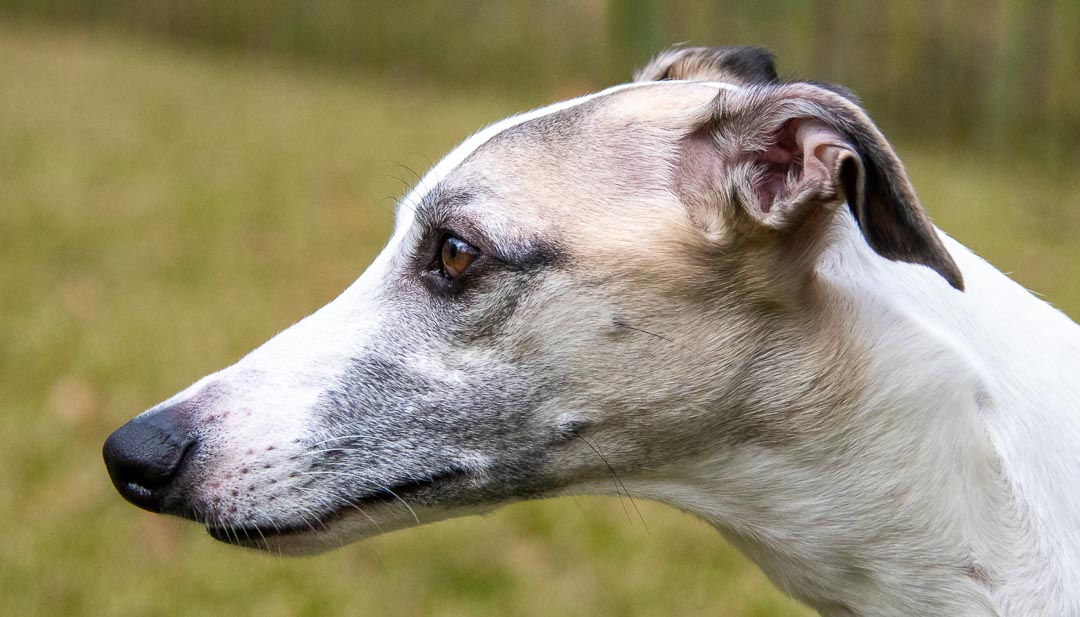What Happens If Dogs Eat Black Pepper?

It’s a good idea not to get in the habit of feeding your pup table scraps and food that’s seasoned with salt and pepper. Many human foods are high in fat and can lead to weight gain in dogs. Regularly feeding table scraps can also encourage unwanted behavior in dogs, such as begging for food at the dinner table or stealing food.
Lightly seasoned food shouldn’t be a problem for your dog. However, larger quantities of black pepper can irritate the inner lining of the stomach and intestines. If your dog ingests too much black pepper, you may notice some of these symptoms:
If your dog inhales too much pepper — for example, if you spill it on the floor — it may cause an unpleasant sensation in his nose leading to a bout of excessive sneezing. In severe cases, it could irritate the lining of the airways and lungs, leading to breathing problems. You may notice his breathing become noisier or see that he’s making more effort than usual when breathing.
If you’re concerned about your dog’s vomiting, diarrhea, or abdominal discomfort, then it’s best to seek veterinary advice. Any change to your dog’s breathing is considered an emergency, and you should seek urgent veterinary advice.
Can Dogs Have Salt And Pepper?
Dogs can tolerate salt in small quantities. However, large quantities of salt can be dangerous to dogs. If your dog eats a lot of salt, it can cause him to vomit and be very thirsty. In extreme cases, excess salt ingestion can alter the normal levels of salt in your dog’s blood, leading to an increase in blood pressure and kidney problems. Salt poisoning isn’t likely with the amounts of salt used in seasonings, but it’s important to be aware of the risk.
If you want to share some of your own food with your dog and it contains salt and pepper, then use your best judgment. Meat or vegetables seasoned with a small amount of salt and pepper should be safe in small quantities, but it is best to avoid heavily seasoned foods.
Can Dogs Eat Garlic Salt or Garlic Powder?
Garlic is an ingredient that you should always keep away from your dog in all forms. Garlic contains thiosulfate which is toxic to dogs.
Fresh garlic, garlic salt, and garlic powder are all toxic to dogs. Thiosulfate causes oxidative damage to your dog’s red blood cells. This results in hemolytic anemia.
Rest assured that a sprinkle of garlic powder won’t do much damage. Studies show it would take about 5 cloves of garlic to harm your dog.
Marjoram is another toxic spice to dogs. It could cause gastric irritation which would lead to diarrhea and vomiting.
Nutmeg is another spice that is toxic to dogs. This is because it contains Myristicin.
Just like with the other spices in this list, it takes a large dose to really cause harm to your dog. At high doses, nutmeg can cause disorientation, hallucinations, rapid heart rate, and higher blood pressure.
If they eat one cookie that has a minor amount of nutmeg, just keep an eye on them. Chances are they will be ok. Dogs with really sensitive stomachs might still experience an upset stomach.
Read more about dogs and nutmeg.
Onions in all forms – even the powder – contain N-propyl disulfide which causes a breakdown of red blood cells and anemia in dogs. You should keep your dog away from onions and anything containing onion powder.
Paprika isn’t as dangerous to dogs as some of the other spices in this list, but it is still unsafe to just give your dog.
It’s been known to cause skin and eye irritation. It can also upset your dog’s stomach. Keep your dog away from the jar of paprika and avoid giving your dog anything that is made with paprika.

Vanilla extract and imitation vanilla both contain a high alcohol content that isn’t safe for your dog.
Dogs cannot break down alcohol in their bodies. If they drink too much vanilla extract, it could give them alcohol poisoning.
That being said, if you find alcohol-free vanilla that uses vegetable glycerin, you can use this safely in homemade dog treats.
There are also a lot of different spice and seasoning mixes. As you know, it is a good idea to serve your dog food that is plain or unseasoned. Here is a bit of information about popular spice mixes and whether they are safe for your furry friends.
Just like with dried herbs, fresh herbs could be beneficial or toxic. This guide to fresh herbs and dogs will answer all of your questions.
Lots of people like to grow dill, oregano, sage, and thyme. If you do, read that guide first so you know what to do if your dog gets into your herb garden.

If you want to make your own dog food or add a little flavor to the food you buy your dog, these are the seasonings that are safe for dogs.
Will Rock Salt hurt my dogs feet?
If you want to let your dog eat food from the table, or you enjoy cooking for your dog, it is important to know which spices dogs can and can’t eat. It is critical for your dog’s health and safety. This is what you need to know about dogs and spices.
Cooking for yourself is one thing, but you have to be more careful when you cook for your dog. When it comes to spices for dogs, there are some that are too strong, some that are dangerous, and others that won’t affect them at all. Keep reading to learn more about which is which.
For ultimate pet safety, please ask your vet any questions you have regarding your dog eating spices. Table Of Contents